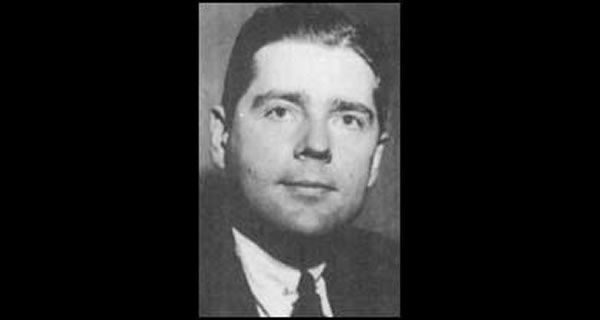Fitzgerald Desmond
Desmond FitzGerald (June 16, 1910 – July 23, 1967) was an American Central Intelligence Agency deputy director and recipient of the National Security Medal.
He was educated at St. Mark's School in Southborough, Massachusetts and Harvard University. According to Smith's Encyclopedia of the CIA, in World War II he enlisted as a private, but later went to Officer Candidate School and became a liaison to the Chinese army. He became a major and was awarded the Bronze Star He was linked with the Chinese 6th army which operated in Burma. After the war, he worked at a Wall Street law firm in New York City. He was connected to elite social circles.
According to Prados he worked in the Far East Division on a diverse array of projects, dealing with Tibet, China, the Philippines, Japan, and Korea. He also became friends with William Colby after Colby transferred to the division. Fitzgerald was especially interested in the Tibetan Task Force, supporting the Tibetan rebellion against the Maoist Chinese takeover, for example in the 1959 Tibetan uprising. He told officers to work with Gyalo Dhondup. Smith writes that in 1951 he was in the Office of Policy Coordination. He rose up to work in the Directorate of Plans, a position from which he warned against becoming involved in a failed 1958 rebellion in Indonesia.
Eventually, he became head of the Far Eastern Division. According to L. Fletcher Prouty, in 1960/61 Fitzgerald was assigned to be a guide for the new CIA Director, John A. McCone, who was replacing Allen Dulles after the Bay of Pigs fiasco. The plan, according to Prouty, was to "indoctrinate" McCone, who had no CIA experience, into favoring the views of a certain faction within the CIA, through the instruments of a world tour, staged operations in Vietnamese villages, and a meeting with Ngo Dinh Diem.
In 1966 he became Deputy Director for Plans. As such, he asked Edgar Applewhite to attack Ramparts magazine as part of the CIA's cold war strategy. Applewhite claimed he used "dirty tricks" and blackmail to harm the magazine's business. Later, he worked on CIA's prediction of the six day war. He was regarded highly by many, including Allen Dulles. and John Kenneth Galbraith (although the latter also called him reckless).

